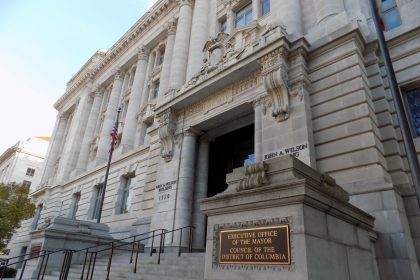Maui Hate Crime Case Spotlights Hawaii’s Racial Complexity

HONOLULU (AP) — In a case that reflects Hawaii’s nuanced and complicated relationship with race, two Native Hawaiian men are scheduled to be sentenced Thursday for a federal hate crime in the brutal beating of a white man who tried to move into their remote, traditional fishing village.
A jury convicted Kaulana Alo-Kaonohi and Levi Aki Jr. in November, finding that they were motivated by Christopher Kunzelman’s race when they punched, kicked and used a shovel to beat him in 2014. His injuries included a concussion, two broken ribs and head trauma.
Local lawyers believe this is the first time the U.S. has prosecuted Native Hawaiians for hate crimes. The unique case highlights the struggles between Native Hawaiians who are adamant about not having their culture erased and people who move to Hawaii without knowing or considering its history and racial dynamics.
Tensions began over a dilapidated, oceanfront home in Kahakuloa, a small village off a narrow road of hairpin turns and sweeping ocean views at the end of a valley on Maui, an island known for luxurious resorts.
Growing up in the village, Alo-Kaonohi would “hunt, fish, farm, live off the land,” he wrote in a letter to U.S. District Judge J. Michael Seabright. “To make a little money, I would sell coconuts, mango, flowers, bananas on the side of the road to tourists who would be passing through to see the beautiful scenery of Kahakuloa.”
Kunzelman and his wife purchased the house sight-unseen for $175,000 because she wanted to leave Scottsdale, Arizona, to live near the ocean after being diagnosed with multiple sclerosis.
“We loved Maui; we loved the people,” Lori Kunzelman told The Associated Press, describing how her husband planned to fix up the house himself.
He was starting to do that when the attack happened, she said.
“It was obviously a hate crime from the very beginning,” she said. “The whole time they’re saying things like, ‘You have the wrong skin color. No ‘haole’ is ever going to live in our neighborhood.’”
“Haole,” a Hawaiian word with meanings that include foreigner and white person, is central to the case. It’s a word often misunderstood by people who don’t comprehend Hawaii’s history of U.S. colonization and the 1893 overthrow of the Hawaiian Kingdom by a group of American businessmen, said Judy Rohrer, author of a book titled “Haoles in Hawai’i.”
White people who move to Hawaii are unaccustomed to being identified racially and are “not used to thinking about whiteness,” said Rohrer, who grew up white in Hawaii and is now a professor at Eastern Washington University. “We’re used to being in the majority and then we get to Hawaii and all of a sudden we’re not in the majority, and that makes us uncomfortable.”
Of Hawaii’s 1.5 million residents, about 38% are Asian, 26% are white, 2% are Black, and many people are multiple ethnicities, according to U.S. census figures. Native Hawaiians account for about 20% of the population.
But it’s more than racial, Rohrer said, explaining how the Hawaiian word has become part of Hawaii Pidgin, the creole language of the islands, to describe behavior or attitudes not in sync with local culture.
“Acting haole” means “acting out of entitlement, and like you own the place,” she said.
In video recorded by cameras on Kunzelman’s vehicle parked under the house, only one racial utterance can be heard, defense attorneys said. Aki is heard saying, “You’s a haole, eh.”
Kunzelman testified that what’s not audible in the video is the men calling him “haole” in a derogatory way.
After the assault, Aki referred to Kunzelman to police as a “rich Haole guy,” a “dumb haole,” and a “typical haole thinking he owning everything … trying to change things up in Kahakuloa,” prosecutors said.
Tiare Lawrence, a Native Hawaiian community advocate on Maui, said she doesn’t condone the attack but is deeply familiar with the tensions that permeate the case.
“The threat of outsiders coming in … brings a lot of sadness for Hawaiians who are trying so hard to hold on to what little piece of paradise we have left,” she said. As an example, she cited efforts to revitalize the Hawaiian language after it was banned in schools in the wake of the overthrow.
Attorneys for Aki and Alo-Kaonohi say it wasn’t Kunzelman’s race that provoked them, but his entitled and disrespectful attitude.
Kunzelman came to the village saying he wanted to help residents improve their homes and boost property values, without considering that higher property values come with higher property taxes in a state with the highest cost of living, the defense attorneys said. But the tipping point came when Kunzelman cut locks to village gates, they said.
Kunzelman testified he did so because residents were locking him in and out. He testified that he wanted to provide the village with better locks and distribute keys to residents.
In a letter to the judge, Aki said he doesn’t see himself as racist: “Not only because I am almost half-Caucasian but also because I have people who I love and care about who are white.”
Both men were prosecuted in state court for the assault. Alo-Kaonohi pleaded no contest to felony assault and was sentenced to probation, while Aki pleaded no contest to terroristic threatening and was sentenced to probation and nearly 200 days in jail.
Alo-Kaonohi was also sentenced to a year in prison for an assault at a Maui bar soon after the Kunzelman attack.
For the federal hate crime, prosecutors are asking for a sentence of about nine years for Alo-Kaonohi and six-and-a-half years for Aki.
Lori Kunzelman acknowledged being unaware of Hawaiian history and said she has since learned about it.
“But attacking an individual white man doesn’t change history or improve things or justify actions on anybody’s part,” she said.
The Kunzelmans still own the Kahakuloa home but split their time between Arizona and Puerto Rico.
“We couldn’t even sell it to anybody because it’s not safe,” Lori Kunzelman said. “It’s not safe because of the animosity that’s there.”
In an attempt to convey the animosity, prosecutors during the trial portrayed village residents as saying things like, “this is a Hawaiian village,” and “the only thing coming from the outside is electricity.”
But several non-Hawaiians who live or have lived peacefully in the village told the AP they never had problems.
“I am 82 years old. I have lived here for 50 years,” said Bruce Turnbull, a white, retired teacher who lives near Alo-Kaonohi’s family. “I’ve learned in Hawaii, coming from the outside in, it’s a good thing to live by the people around you and not tell them to live by you and your values.”
___
AP Researcher Jennifer Farrar in New York contributed to this report.






















